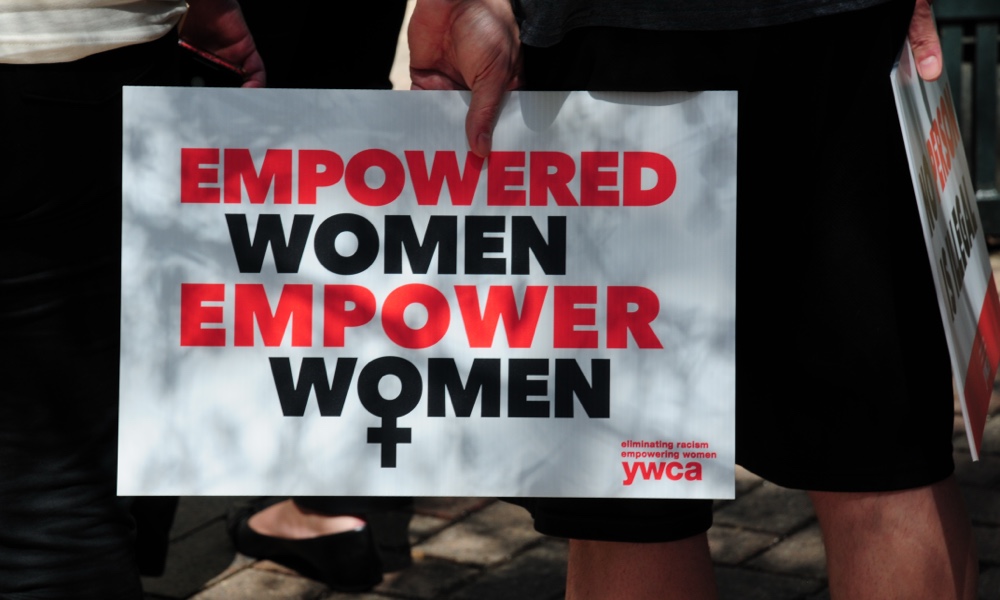By
Erin Coulehan
Editorial photography by
Al Garcia
Additional photography courtesy of
YWCA Paso del Norte Region
In a culture that often sidelines women, YWCA Paso del Norte Region does something extraordinary: it centers them. It remembers, honors, and uplifts the women whose leadership built the very platform that today’s generation stands on.
This spring, YWCA El Paso del Norte Region marks not one but two major milestones: the 30th Annual YWCA Women’s Luncheon and 115 years of service to the Borderland community. To honor the occasion, the organization welcomed critically acclaimed actress, director, producer, and humanitarian Lucy Liu as the luncheon’s keynote speaker.
For over a century, YWCA El Paso has been at the forefront of empowering women, eliminating racism, and promoting peace, justice, freedom, and dignity for all. Through programs like the Sara McKnight Transitional Living Center, Academies for Early Learning, After School Programs, Summer Camps, Supportive Housing, Health and Wellness initiatives, and Social Equity programming, YWCA touches more than 26,000 lives each year. The Women’s Luncheon is the organization’s largest fundraiser – and this year, it carries even more weight.
Among the crowd will be a special group of women: the originals.
These are the women who attended the very first luncheon and have never missed a single year since. They are the living archive of YWCA’s journey: women who once sat at those first tables, dreaming big and showing up for one another when doing so wasn’t always easy or popular.
“Our team was just talking about that,” says Melissa Atkins Wardy, Major Impact Administrator. “We realized that when this luncheon started, the women who founded it were our age. Now, 30 years later, we look up to them. One of our longtime donors came by the other day for her headshot for the program. We were all kind of fawning over her, saying, ‘We want to be just like you when we grow up!’”
That quiet reverence says a lot – especially in a world that does not often support working women and mothers.
In Texas, women make up 46 percent of the civilian workforce and are earning more college degrees than men – yet they continue to face wage disparities. As of June 2024, the state’s civilian labor force participation rate stood at 64.3 percent, with women experiencing slightly higher unemployment rates than their male counterparts. On average, Texas women earn just 83.1 cents for every dollar earned by men.
Caregiving responsibilities continue to fall largely on women’s shoulders.
In 2024, 82 percent of caregivers in Texas identified as female, reflecting a national trend where women are disproportionately impacted by unpaid caregiving work. In El Paso, this burden is compounded by the lack of affordable, quality childcare, especially for families with children under six. The shortage of childcare slots, coupled with long waitlists for financial assistance through the Texas Workforce Commission, makes it particularly difficult for low-income families to access the care they need. As a result, many working parents are forced to make difficult choices, with childcare costs consuming a significant portion of household income.
“We live in a society that doesn’t always value women,” Wardy says. “But we are looking up to them – not just for the legacy they’ve built or the work they’ve done, but for who they are.”
Sereka Barlow, CEO of the YWCA Paso del Norte Region agrees.
“We’re in an organization that for more than 115 years – 116 now – has never forgotten the woman,” she says. “It’s not only about the woman, but it’s this reminder: Don’t forget us.”
“Women are so often second in thought,” Barlow continues. “We’re paid less, offered fewer leadership opportunities; and when we do reach those positions, it’s often in nonprofits. But we’re still powerful. We have incredible capability. Don’t turn your back on wisdom. That’s what our mission is about.”
Over the past two years, YWCA has increased salaries across seven program areas, grown fitness memberships by 36 percent through strategic health and wellness partnerships, and strengthened staff development, reducing turnover to under 5 percent. Major infrastructure investments have included $4 million in renovations at the Joyce-Janes Branch, upgraded security and cybersecurity, and the deployment of 380 iPads to after-school sites. These efforts go hand-in-hand with initiatives to empower women, providing over $1.3 million in free and subsidized child care, supporting nearly 500 women and children through transitional and supportive housing, and launching high school internship programs. YWCA has also expanded its reach for children through free after-school programming, a formal pre-K partnership, and enriching collaborations with cultural institutions.
Beyond direct service, the organization advocates for equity by championing early childcare access, addressing disparities in swim safety, and connecting families with critical resources. These milestones are not just accomplishments, but rather the scaffolding for a stronger future, and a reminder that the work of empowering women and eliminating racism is as essential now as ever.
Barlow believes the YWCA’s longevity stems from its ability to evolve while staying rooted in community needs.
“We adapt,” she says. “That’s how we’ve lasted, and it’s how we’ll continue. We write for funding that helps families who can’t afford services. We create access, connection, and opportunity; not just for the child, but for the whole family.”
Sometimes, that opportunity starts with something as essential as after-school care.
“We know those are critical hours, from 3 to 6 p.m.,” Wardy explains. “And without safe child care, women can’t work, can’t go back to school, can’t move forward. So just by offering that space, we’re empowering them.”
The children in YWCA programs are learning and growing in ways they may not even recognize, such as through robotics, social-emotional education, and playful exploration that fosters brain development.
“They think they’re just playing,” she adds. “But they’re being set up for success.”
Summer camps are no different: fun on the outside, educational at their core.
“That’s how we prevent summer learning loss,” says Wardy. “Kids go back to school confident and ready. Families have peace of mind knowing their children are safe and supported.”
Indeed, the YWCA’s mission has withstood more than a century of social and political upheaval.
“We’ve been here through the suffragette movement, Jim Crow, segregation, the Civil Rights era, 9/11, and more,” says Wardy. “This isn’t our first hurdle. It’s just the current one.”
As national conversations challenge the values the YWCA stands for, the organization holds fast.
“Our donors have stayed steady and true. They believe in the mission. The money we raise from the Women’s
Luncheon funds our work all year long,” Wardy explains.
In this landmark year, there’s no one better suited to headline the celebration than Lucy Liu.
Over her three-decade career spanning Hollywood, Broadway, and the art world, Liu has become a powerhouse of representation and advocacy. Known for iconic roles in Charlie’s Angels, Kill Bill, Ally McBeal, and Elementary, she continues to blaze new trails with projects like Red One, Presence, and Old Guy. Off-screen, her humanitarian work is just as impactful. As a UNICEF Ambassador and producer of human rights documentaries like Freedom’s Fury, Redlight, and Meena, Liu keeps human dignity at the center of her work.
Her honors – including the Women’s World Award, Danny Kaye Humanitarian Award, Harvard’s Artist of the Year, and the 2024 Gold Legend Award – speak to a life lived in service of meaningful change. She is a natural fit for this moment of reflection, resilience, and recommitment.
During a recent photoshoot for the luncheon’s commemorative program, a longtime benefactor visited the YWCA office. The staff couldn’t help but admire her presence – elegant, assured, still sharp with the kind of wisdom that only comes from living fully and fearlessly. It was said quietly but unanimously: When we grow up, we want to be like her.
That’s what this luncheon is really about: not just fundraising, but future-building. Not just nostalgia, but nurturing. Not just honoring the work, but also ensuring it continues.
“We’re just fortunate beyond words to do what we get to do every day,” Barlow said. “YWCA is a place of safety. A place where lives are changed. And we’re grateful for the opportunity to keep showing up for our community.”
Here’s to the first 115 years, and to the many more still to come.
















